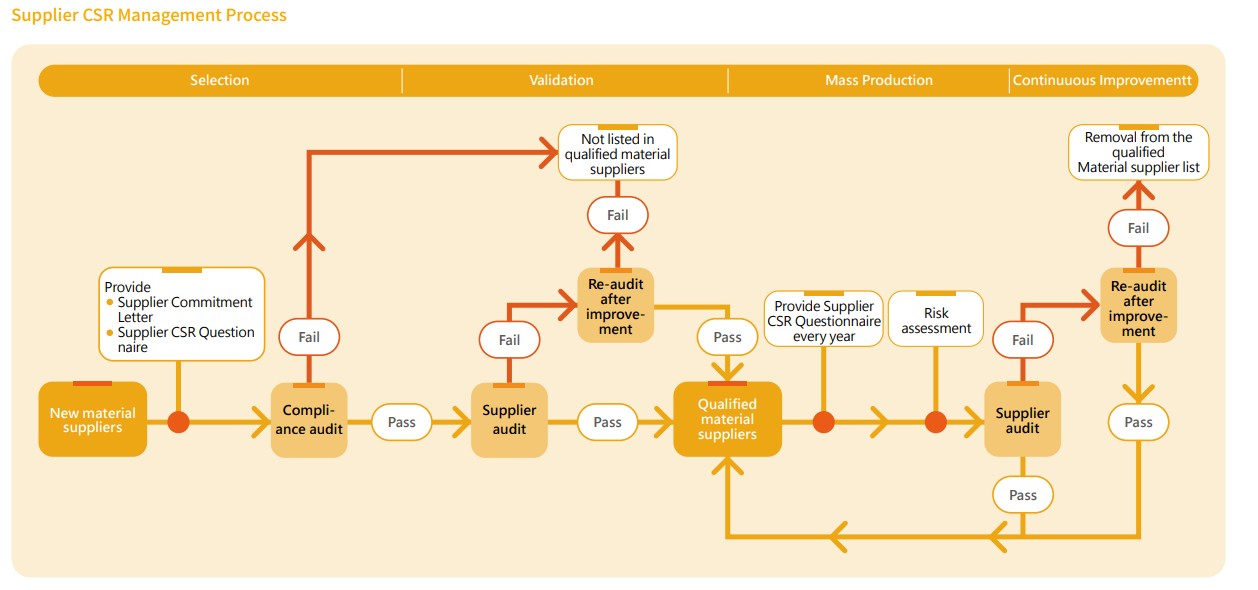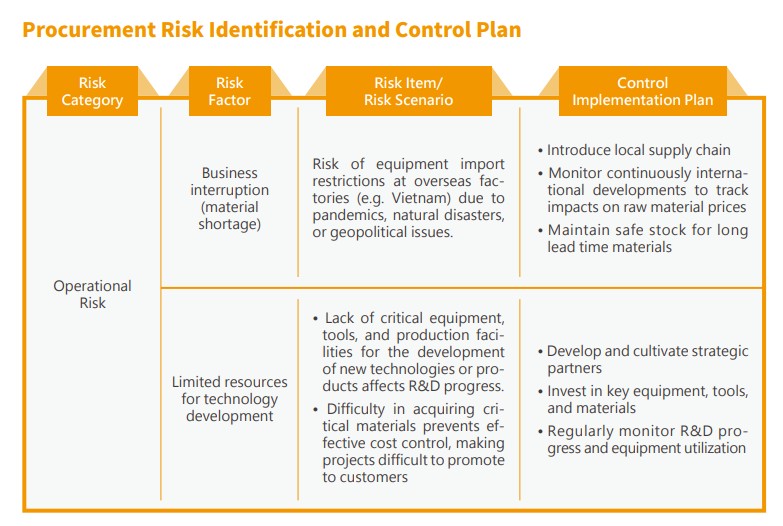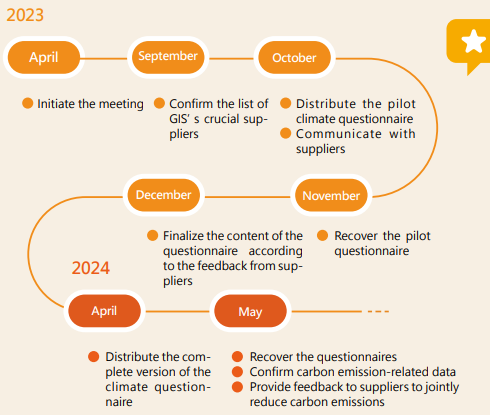Supply Chain Sustainability Management
To reduce operational risks, enhance product competitiveness, and accelerate the industry's low-carbon transition through its own choices and influence, GIS’s supplier management has four stages: Selection, Verification, Mass Production, and Continuous Improvement, based on its Supplier CSR Management Operating System. GIS regularly conducts risk assessments and reviews for both new and existing suppliers, actively promoting sustainable management.
The Company also regularly monitors and refers to various international standards. In 2024, the EU issued the Corporate Sustainability Due Diligence Directive, requiring companies to implement human rights and environmental due diligence. Prior to this, the Company had already developed the Supplier Social and Environmental Responsibility Code of Conduct Operating Standard in alignment with RBA 8.0 and incorporated the Code into supplier commitment letters. In addition to requiring all new suppliers to sign the letter, the Company also carries out reviews from time to time. The Operating Standard outlines five key areas: ethics; labor rights (including the prohibition of child labor and forced labor, restrictions on excessive working hours, prohibition of discriminatory practices, and equal pay for equal work); health and safety; environment (hazardous substances and waste management); and management systems.
GIS also provides a complaint channel for suppliers via audit@gis-touch.com. In 2024, the Company did not receive any complaints.

Supplier Review and Verification
The Company consistently designates qualified material suppliers that have entered mass production as primary review targets for the year. Based on risk assessment results, review methods are categorized into data and on-site reviews. Suppliers assessed as high-risk are included in the annual on-site review plan, while low-risk suppliers are reviewed as necessary. After each review, the Company actively tracks suppliers’ corrective actions for their deficiencies. If a supplier fails to complete or cooperate with improvements within the timeframe specified by GIS, the Company will evaluate whether to remove it from the Approved Vendor List (AVL). In 2024, GIS reviewed a total of 92 suppliers, all of whom were qualified, with none disqualified or removed.

Critical Material Risk Management
GIS carries out risk assessments on critical materials to identify factors that may affect the stable supply of raw materials. These factors include supply disruptions caused by extreme weather events, international situations, scarcity of raw materials, and the issue of conflict minerals. Raw material supply risk is managed in accordance with the Procurement Management Operating System, Business Continuity Management Operating Regulations, Supplier Management Operating Regulations, and New Supplier Operating Regulations. Specific actions include defining critical and non-critical materials, conducting regular supplier reviews, building a diversified supplier base, and implementing BCM (Business Continuity Management) processes. These measures enable GIS to respond promptly to risks of material supply disruptions or quality issues, and ensure stable operations and long-term corporate development.
Note: According to GIS's Supplier Management Operating Regulations, the Key Parts List include TFT Glass and Mesa Tape, while the Normal Parts List include Primer C and Copolymer (piezoelectric materials, acetamide compounds).

Crucial Supplier Climate Questionnaire
To achieve its net zero goal, proactively deploy relevant carbon reduction plans, and obtain more accurate GIS Scope 3 emissions data (primarily from purchased goods and services), GIS launched a "Climate Change Response Questionnaire" (hereinafter referred to as the Climate Questionnaire) program for key suppliers in 2023. This program aims to obtain direct data on Scopes 1 and 2, thereby updating GIS Scope 3 data and identifying carbon reduction hotspots within the company's supply chain.
After the initial distribution of the Climate Questionnaire, revisions and finalization were made. The full version of the Climate Questionnaire was distributed to key suppliers in 2024, and will continue to be distributed to actively implement sustainable management.
